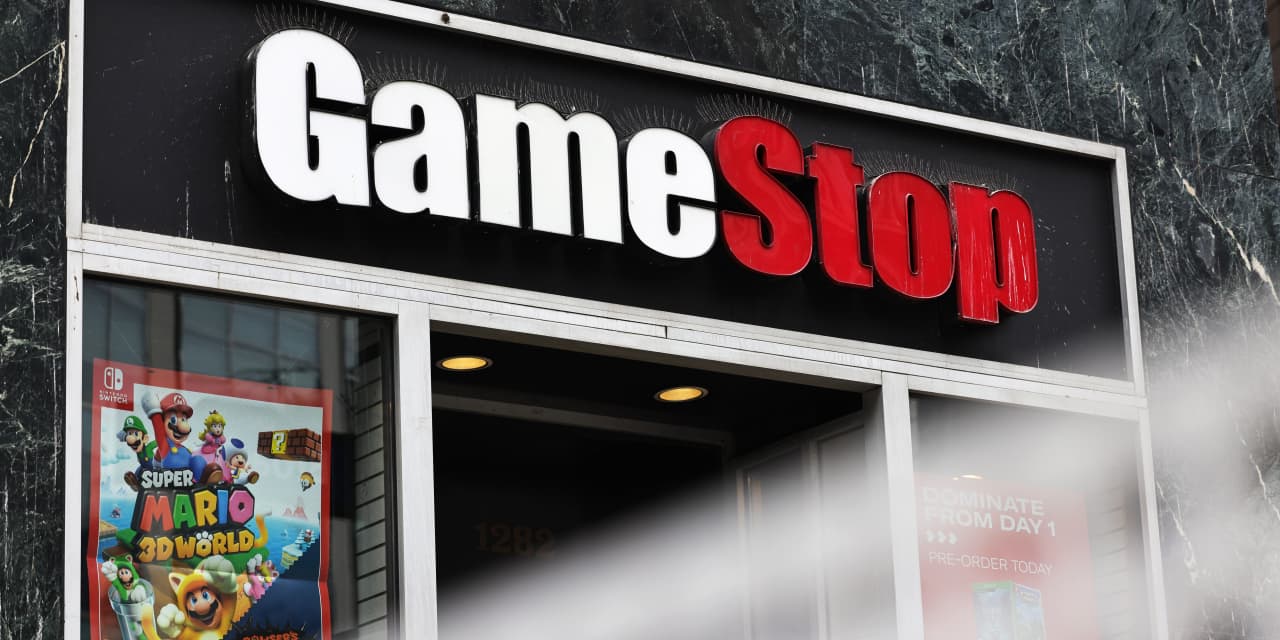GameStop Corp.’s decision to extend its investment policy to include equities is an “alarming” and “inane” move, according to analyst firm Wedbush.
In a filing that accompanied the company’s third-quarter results Wednesday, GameStop
GME,
said that its board of directors has approved the new investment policy, which lets the company invest in equity securities, among other investments. GameStop’s board has given Chairman and Chief Executive Ryan Cohen the authority to manage the investment portfolio, the filing added.
“In one of the most inane moves we have ever seen, GameStop’s Board of Directors delegated authority to manage the company’s portfolio of securities to its CEO and has extended the investment policy’s range to include equities,” Wedbush analyst Michael Pachter said in a note released Thursday. “Investors have a myriad of investment vehicles available to them and therefore do not need GameStop to act as a mutual fund.”
Related: GameStop stock slips after revenue miss, and Ryan Cohen eyes equity investments
“If GameStop truly believes in the value of its shares, it should use its excess cash to buy back stock,” Pachter added. “The company’s decision to invest in equities other than its own is alarming, implying that GameStop management believes it will achieve better returns by buying equities aside from its own.” Wedbush maintained its underperform rating and $6 price target for GameStop.
GameStop has not yet responded to a request for comment.
The videogame retailer and original meme stock exited the third quarter with cash and cash equivalents of $1.210 billion, compared with $1.195 billion at the end of the prior quarter.
Previously: Ryan Cohen becomes GameStop CEO and social media reacts: ‘Changing the paradigm on Wall Street’
Shares of GameStop, which have enjoyed a recent meme-like rally, fell 2.8% Thursday. The stock is down 22.7% in 2023, compared with the S&P 500 index’s
SPX
gain of 19.1%.
GameStop missed analysts’ revenue expectations with its fiscal third-quarter results, despite coming in better than anticipated on the bottom line. The shift from physical to digital games continues to weigh on GameStop, according to Wedbush’s Pachter. “On the software front, GameStop underperformed the broader market with revenue in the segment down 8.7% YoY,” he wrote. “The software pieces were in place this quarter for GameStop to deliver a compelling revenue result (with games like EA Sports FC 24, Marvel’s Spider-Man 2, and Super Mario Bros. Wonder), but GameStop failed to do so, significantly underperforming the broader market as it continues to deal with a shift to digital consumption.”
John Oh, an analyst at Third Bridge, said GameStop continues to face stiff competition from the likes of Amazon.com Inc.
AMZN,
“While the softness in Q3 sales was to be expected, our experts have said that the increasing market-share losses to mass merchants and e-commerce giants such as Amazon will continue to be an uphill battle for GameStop,” he said in an emailed statement Wednesday.
Related: It’s the end for the ETF devoted to meme stocks, which has fallen 60% since inception
While cost-savings and profitability continue to be a focus for GameStop, there still may be quite a ways to go, according to Third Bridge. “In one example, our experts have noted that despite all the store closures we’ve already seen, GameStop still likely has twice as many stores today than what is needed,” said Oh.
In its filing, GameStop said that it has “thousands of stores” and e-commerce platforms. However, store-related costs have decreased $5.8 million in the current year as a result of store closures, primarily in Europe, it added.
Read the full article here




